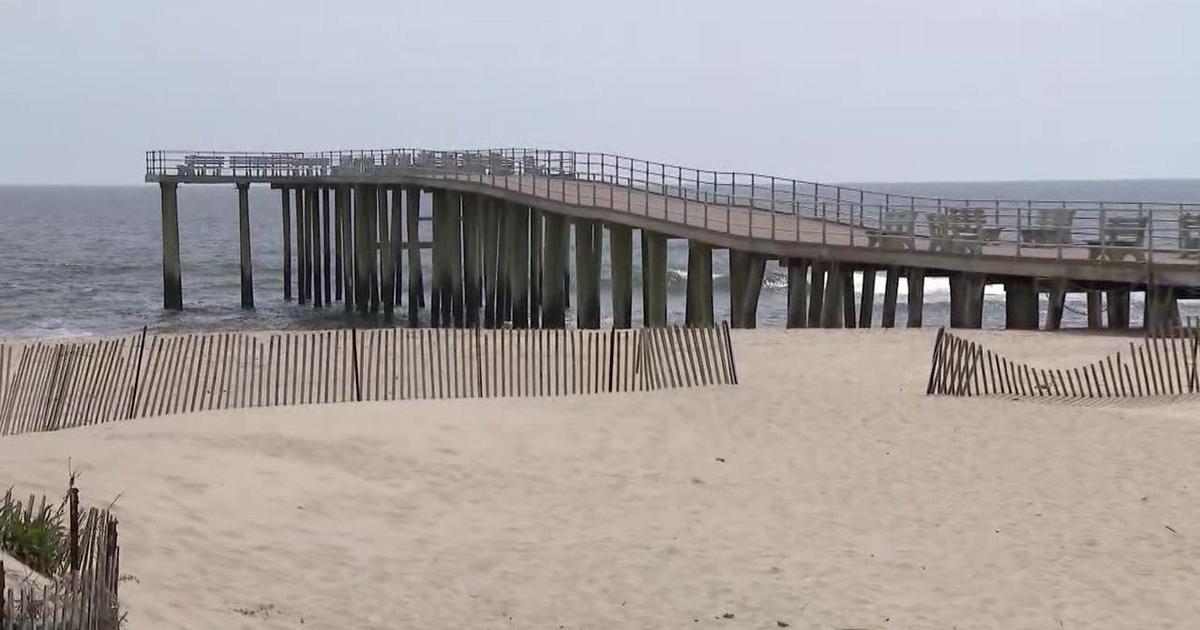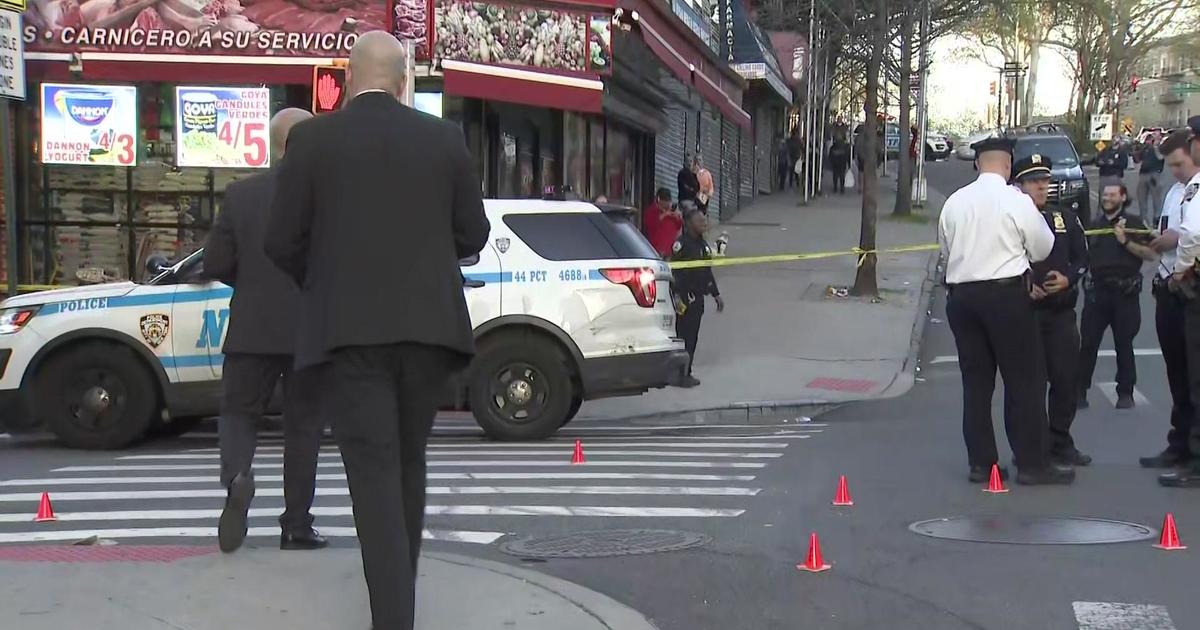Legislators Introduce Bill For Referendum On North Jersey Casino
TRENTON, N.J. (CBSNewYork/AP) -- Legislation was introduced Friday to start the ball moving to bring casino gambling to northern New Jersey.
The deal announced by Senate President Steve Sweeney calls for a November 2016 referendum on whether to approve two new casinos in separate northern New Jersey counties. The ballot question would not specify locations for either casino.
But as WCBS 880's Peter Haskell reported, the state Legislature would have to back the deal before any referendum.
One of the casinos is expected to be at the Meadowlands in East Rutherford.
Jim Kirkos, who heads the Meadowlands Regional Chamber of Commerce, said the visitors who could patronize a casino are already there.
"American Dream is now in full scale construction. You have the stadium. You have the racetrack," Kirkos said.
If voters agree to amend the state constitution to permit casinos beyond Atlantic City, it would mark the biggest change in legalized gambling since casinos began operating in the seaside resort in 1978.
It also would create an existential challenge to Atlantic City's eight casinos at the same time providing them a lifeline of new revenue from hefty taxes the new casinos would pay.
``The question of gaming outside of Atlantic City has long been debated,'' Sweeney said. ``Now is the time for the voters to decide. Expanding gambling to north Jersey is the best way to revitalize an industry that is important to the state's economy so that we can compete with neighboring states, generate the revenue needed to revive Atlantic City and contribute to economic growth.''
Kirkos said a North Jersey casino would not kill gambling in Atlantic City, where the future lies in a new direction anyway.
"Let's face it. Atlantic City's growth is no longer going to be in the gaming business," he said. "Atlantic City's growth is by becoming a branded destination."
Some of the revenues from a North Jersey casino would be used to revitalize Atlantic City.
Atlantic City Mayor Don Guardian spoke of the pain of watching 8,000 people lose their jobs last year when four of the 12 casinos closed.
``Whole families lost their only source of income after being `Day One' employees at the casinos that they had invested their whole lives in,'' he said. ``Auxiliary services that depended on the thriving casinos died a slow death as each casino went dark and no longer needed their services. Dentists, lawyers, teachers, bankers, real estate agents, restaurant owners, and just about everyone who made a living in Atlantic City and the surrounding areas felt the terrible effects of broken promises from expanded casino gambling and oversaturation of the market.''
The Casino Association of New Jersey said, ``The Atlantic City market finally started to stabilize in 2015, after years of cannibalization by casinos in neighboring states. The last thing this community needs is more competition from within our own state's borders.''
At the Meadowlands, Hard Rock International and the Meadowlands Racetrack unveiled plans in June for a $1 billion casino at the sports complex, next to the stadium where the NFL's New York Jets and Giants play.
Another leading proposal for a site is for Jersey City, where footwear magnate Paul Fireman has proposed a casino costing up to $5 billion.
A requirement in the bill that the new casinos be located at least 75 miles from Atlantic City would appear to knock Oceanport out of the running, where officials wanted to offer casino gambling at the Monmouth Park Racetrack.
A key element of expanding casinos to northern New Jersey is having them pay a much higher tax rate than the 8 percent the Atlantic City casinos pay. Hard Rock has offered to pay a 55 percent tax.
The proposal would send all tax revenue from the new casinos into a New Jersey Investment Fund. For the first 15 years, 49 percent of the money would go to Atlantic City to compensate for their expected losses; 49 percent to counties and municipalities for tax relief for seniors and the disabled; and 2 percent to the horse racing industry.
For the 10 years that follow, the amount sent to Atlantic City would decrease by 3 percent a year and the amount sent to counties and municipalities would increase by 3 percent a year. After that, Atlantic City would get 19 percent of the new tax revenue a year, while counties and towns would get 79 percent.
(TM and © Copyright 2015 CBS Radio Inc. and its relevant subsidiaries. CBS RADIO and EYE Logo TM and Copyright 2015 CBS Broadcasting Inc. Used under license. All Rights Reserved. This material may not be published, broadcast, rewritten, or redistributed. The Associated Press contributed to this report.)



